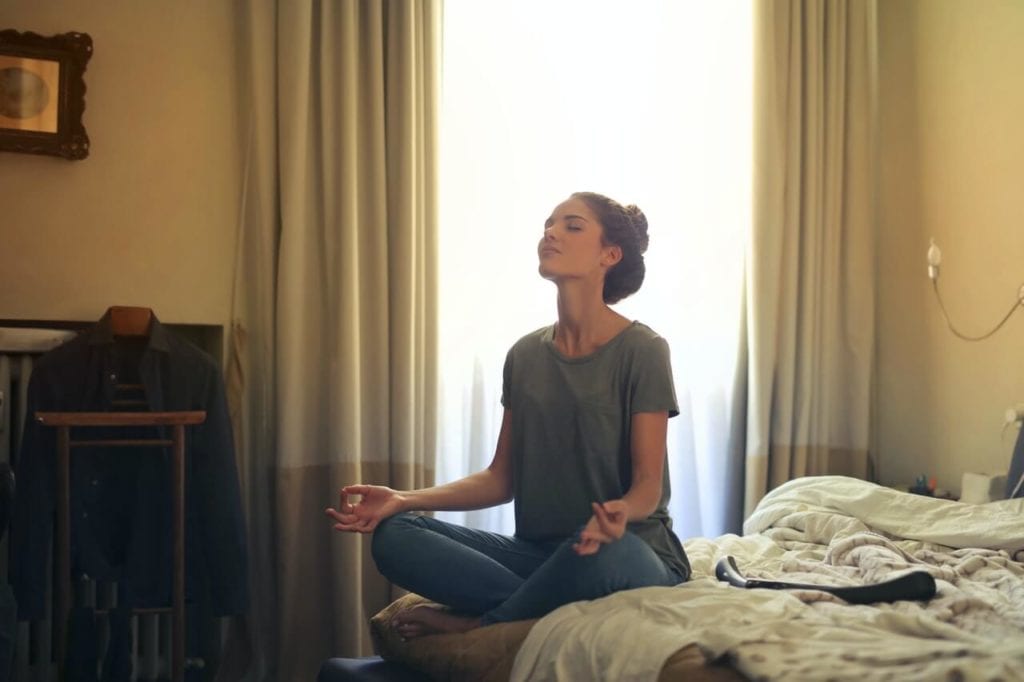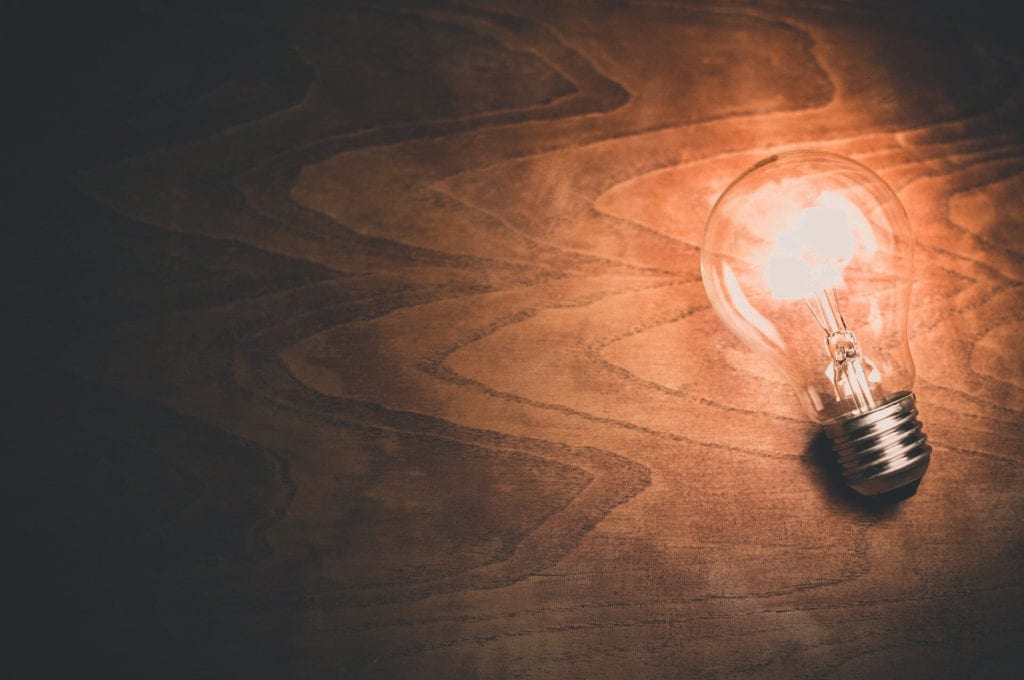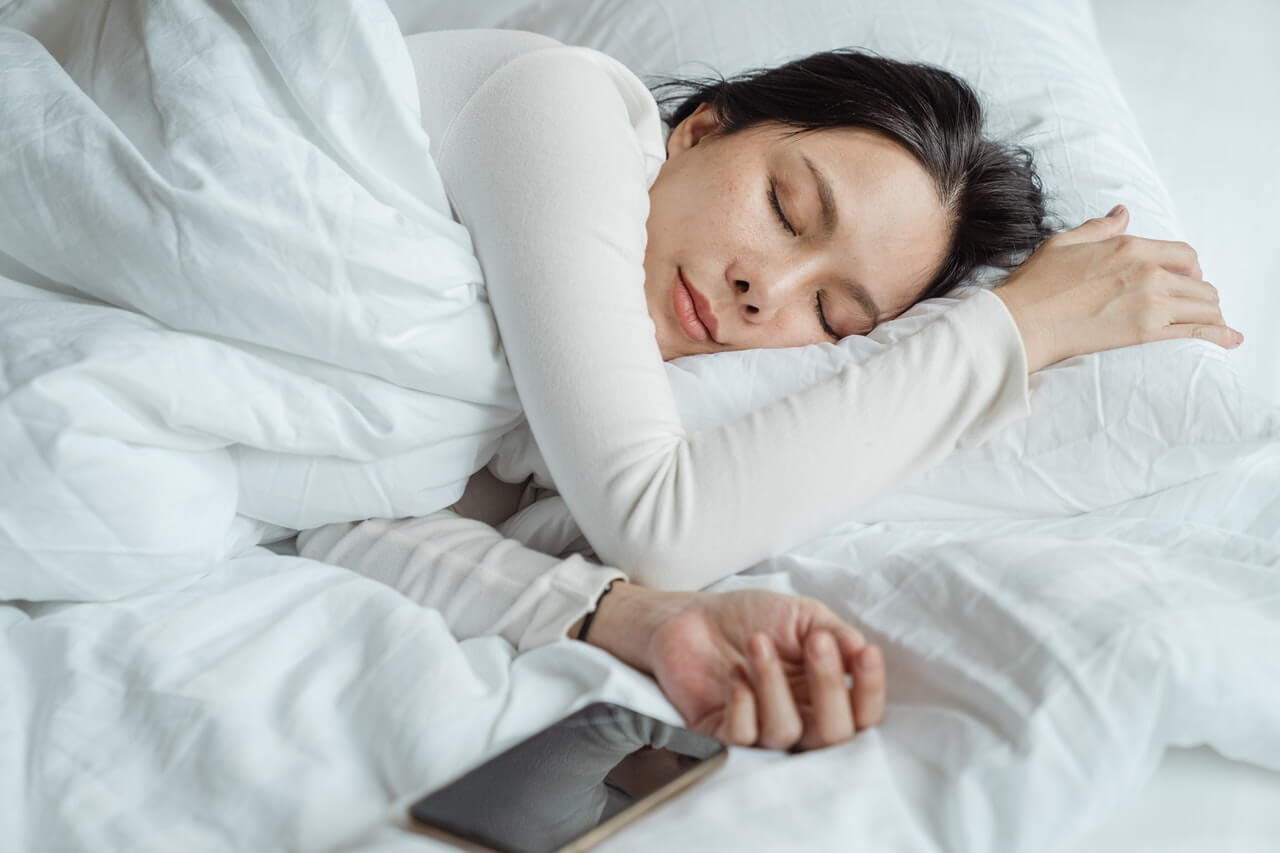Can Meditation Replace Sleep?
- Griff

Meditation and sleep are undoubtedly different. Where Sleep serves to recharge your vitality and assist in recovery, meditation, helps us to combat the stress that made us tired in the first place.
Meditation and sleep are both viable ways to relax the mind and recharge the body, but can one really replace the other?

Make Mindfulness Easy
Join over 50’000 people on their meditation journey.
- Large Library of Classes Taught by Expert Teacher
- One on One Teacher Support
- Transformative Approach to Meditation
- Request a Courses You Want to See
- 60 Day Money Back Guarantee
- Large Library of Classes
- One on One Teacher Support
- A New Approach to Meditation
- Request a Courses
- 60 Day Money Back Guarantee
Is Meditation Better Than Sleep?
Meditation cannot replace sleep entirely, but it can help make the sleep you do get more productive.
Whether you are a stay-at-home parent, working full time, or starting your own business, sometimes there isn’t time in the day to get everything done and get the hours of sleep you need to feel rested and refreshed.
If you’ve experienced this, you may have asked yourself if there is a way to fit more recharge time into your day and improve your quality of sleep, maybe with meditation?
However, this study is not conclusive as it only observed overworked people inclined to business who were already somewhat sleep-deprived.
The body is always going to require a good amount of deep sleep to heal and recharge.
Meditation can help regulate the stress hormone cortisol, helping you fall asleep fully relaxed, the perfect recipe for full, uninterrupted sleep.
So while we can’t replace sleep with meditation entirely, it can help improve our sleep quality and promote better mental health.

How We Feel Afterward
Rather than feeling sluggish in the morning, meditation helps us wake up fully revitalized.
We typically feel a little slow, dull, and groggy when we wake up in the morning (or even after taking a nap).
On the other hand, the post-meditation feeling is one of mental clarity and focus. The reason for this is simple: endorphins.
If you’ve ever felt a “runner’s high”, you’ve experienced these euphoric hormones.
Meditating boosts these chemicals the same way, with benefits enduring long after each meditation session.
Like joggers hitting the asphalt day after day, chasing that post-run euphoria, meditation has many of the same awesome benefits and is equally addictive in its own right.

The Breath
Our heart rate and breath are slower and deeper but equal in terms of oxygen intake during sleep compared to our waking state.
With meditation, as the mind quiets, our bodies require less oxygen to function. Therefore rate of breath will often diminish dramatically.
deep relaxation
With meditation, the mind quiets, our bodies move into a state of deep relaxation, which means it requires less oxygen to function and our breath rate diminishes dramatically.
Researchers have even observed experienced meditators having the ability to decrease their physiology down to a level where heartbeats stop entirely.
While your average meditator isn’t looking to perform these kinds of feats, this physiological control level simply isn’t possible with regular sleep.

Awareness & Consciousness
Our level of awareness is another clear distinguishing difference between sleep and meditation.
While meditating, we stay highly conscious of both our surface level and subconscious mind.
During deep meditation, new, creative and insightful thoughts to bubble to the surface, which you can then take full advantage of.
When we sleep the opportunity to utilize this relaxed state of thinking is mostly taken away from us due to our consciousness not being available to observe it.

Can Meditation Help Me Sleep Better?
In essence, meditation teaches us to stay rooted in the present, which allows us to avoid the thoughts and feelings that caurse our stress and reduce’s our sleep quality.
A meditative practice before going to bed can assist in calming the mind, whereas a morning practice can increase cognitive abilities, helping get the brain clear and focused for the day ahead.
When it comes to achieving deep sleep, meditation allows you to get into bed without that whirlwind of thoughts that can keep us up, tossing and turning well into the night.
Stress caused by agonizing over the past or worrying about the future is a significant cause of insomnia.
Meditation is proven to help increase the hours of sleep you can achieve as well as the quality of that sleep.

What Type of Meditation Can Replace Sleep?
The type of meditation to help sleep is the one that enables you to be in a comfortable position and will be achievable on a regular basis.
This can vary from person to person; however, an excellent place to start would be meditations specifically designed to promote restful sleep. Alternatively, you could try some Deep Breathing techniques like the 4-7-8.
If you cant fit in a meditation practice before bed, then waking up 20 to 30 minutes earlier to meditate in the morning might be the perfect solution.
A morning meditation routine can help you set your intentions for the day, help you feel more awake, and leave your mind disciplined and focused.
Key Facts
- 10 minutes meditation can be the equivalent of 44 minutes sleep.
- Meditation can release endorphins, increasing your level of energy throughout the day.
- When we sleep we breathe deeper but take in the same amount of oxygen. When meditating we require less oxygen and our rate of breath diminishes.
- In meditation we can take advantage of the creative thoughts we have in a relaxed state. These thoughts can’t be observed when sleeping due to us being unconscious.
- Meditation reduces stress which is one of the main causes of insomnia.

Griff Williams
MindEasy founder & meditation teacher
Griff Williams is an accredited meditation teacher and founder of MindEasy. He spent 12 years working as a London firefighter before changing paths to pursue building MindEasy. He received his diploma in meditation teaching from The British School of Meditation.







